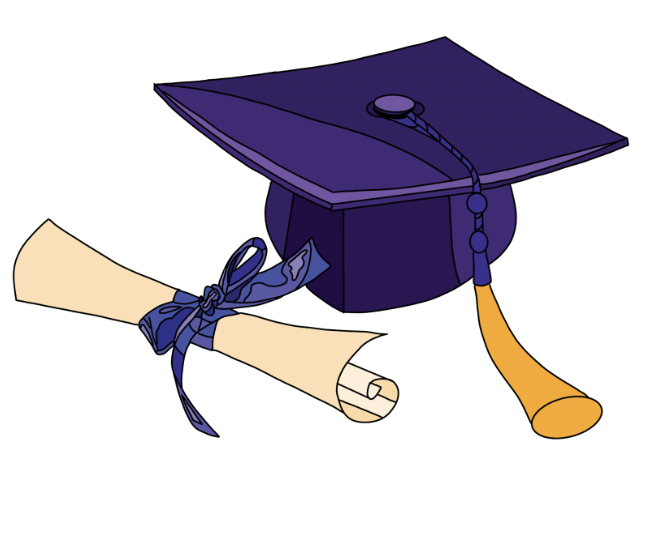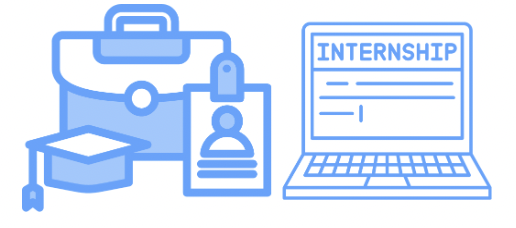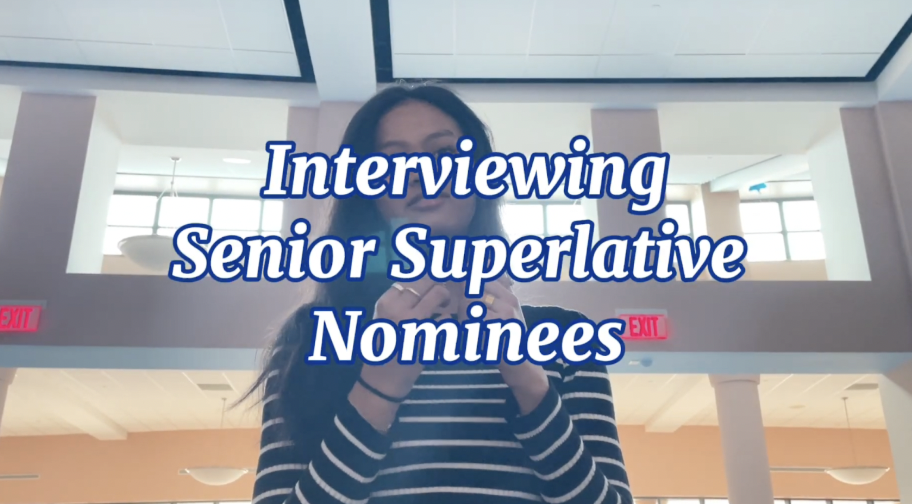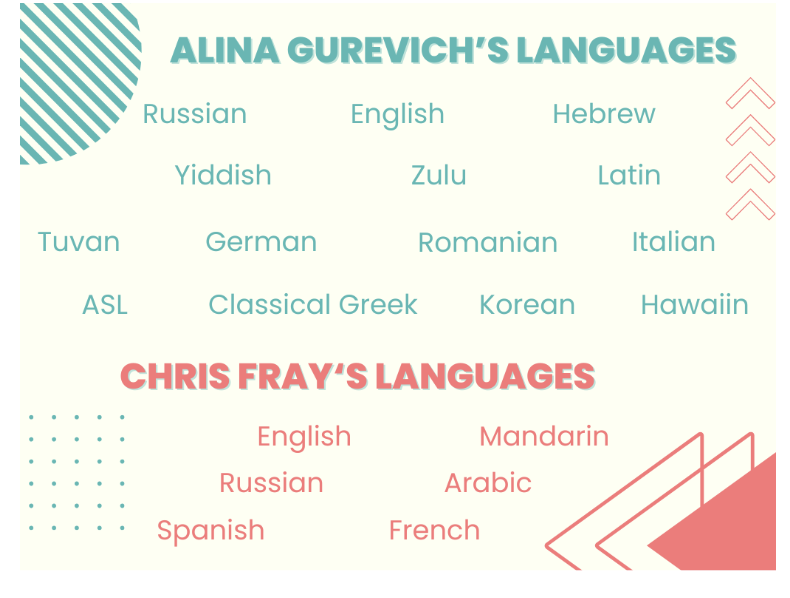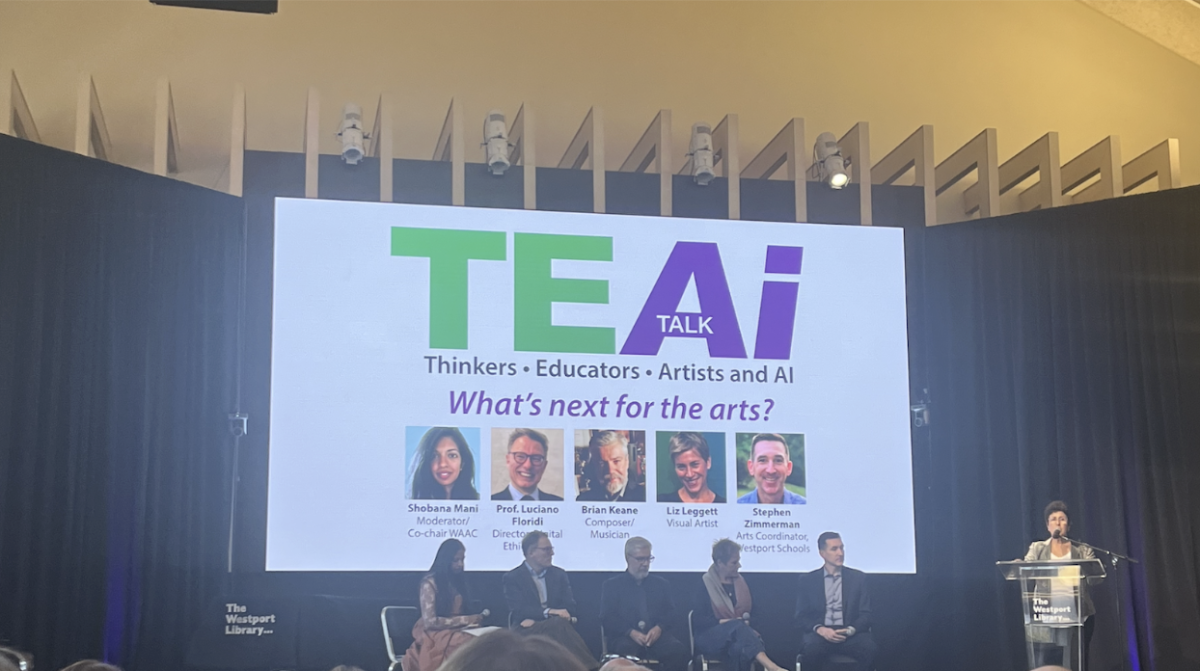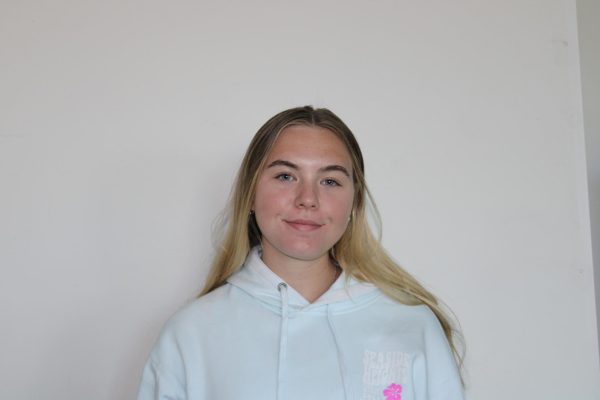The Westport Library held a talk about Artificial Intelligence on Nov. 5. Panelists included Yale University professor Luciano Floridi, Visual Artist Liz Leggett, Composer Brian Keane, Westport Public Schools Arts Coordinator Stephan Zimmerman and Co Chair and Moderator Shobani Mani.
Before the discussion, artists displayed their work in a section of the library while explaining their opinions on AI and whether or not they incorporate it in their artwork.
Rebecca Ross is an artist who doesn’t incorporate AI in her work because the creative process is a really important part of her work.
“Instead of doing anything, instead of erasing anything, I cut it up and instead of doing anything more, I put it back together and I eliminated pieces and I added other things,” Ross said. “I think that’s where AI kind of stops.”
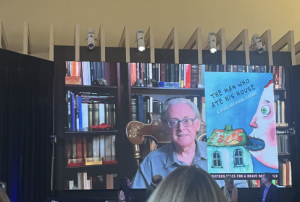
Ross says she thinks it’s too easy to erase, hit control z or just restart entirely, when really it’s important to make something from what you have that actually looks good and is thought through.
When the discussion began, Liz Legget was first to talk about her views on AI as an artist.
“It’s really just a tool to generate images, generate ideas,” Leggett said.
She explained further that AI isn’t becoming something that is replacing the artist entirely. She says it is being used as a tool that may have problems, but it is similar to photoshop or even a camera.
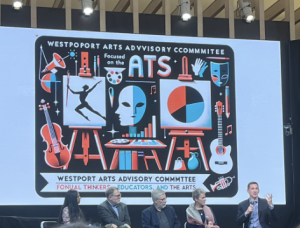
Another important subject was how art itself is taught in public schools here in Westport. Zimmerman explains that the public schools’ foundational skills are being taught and students are exploring mediums and personal voices through drawing, painting and working with clay. At the secondary levels, ethics begin to come into play and whether or not there is bias was questioned.
“Do they even know when they prompt something that they are seeing bias and lack of representation in that output? That’s a real issue,” Zimmerman said.
The topic of school continuously came up during conversation.
“Photography came around, it didn’t eliminate drawing, it didn’t eliminate painting, we have 16 pottery wheels and every period of every day at staples high school those pottery wheels are spinning,” Zimmerman said.
He explained how this hasn’t eliminated something humans have been doing for thousands of years and AI is just another way of creating.
Another main topic was what AI technology really is.
“AI is an extension of human input,” Keane said. “AI has really been used to fleece people. It’s used to influence you to spend money on things and never has there been greater access due to technology and never has there been access to misinformation.”
One of the more major and repeated topics was the authenticity and ethical dilemma of AI.
“Something that is authentic is that it is what it says it is,” Floridi said.
Floridi doesn’t see AI as a threat because it can’t make the same outcome of a Picasso who revolutionized art when he first started. He also stated that we need to be very careful in thinking that AI creations will only be obvious when sometimes it’s difficult to tell.
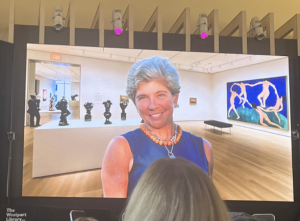
“As we move, say, 10 years from now, it will be very challenging to say this is human made and this is not unless something regulation-wise happens,” Floridi said.
Keane’s interpretation of AI is that it is under human command and is not a sentient being.
“It’s more like a dog. You give it a set of instructions and it rolls over for you,” Keane said.
Keane also describes a recently acquired MoMA piece by an artist who downloaded all the work from the MoMA and made a work of everything that is missing. According to Keane, the MoMa piece is just a machine regurgitating things that were fed to it.
Another question raised is whether AI is or isn’t trustworthy.
“My opinion is I hope we don’t trust everything we see,” Local Graphic Artist Miggs Burroughs said. “We shouldn’t trust everything we read, we shouldn’t trust everything we see or hear; we should enjoy it but not trust it to the sense of oh my god he’s the greatest artist that ever lived until we find out on our own…”
Miggs talks about the importance of digging for information and although he doesn’t incorporate AI in his work, he thinks it’s fun to play around with and says he writes poems about praising the abilities of his cat.
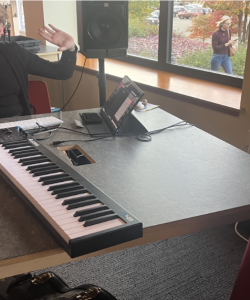
“If it’s just a medium and it moves you, does it matter who made it,” Burroughs said. “I mean, if it makes you cry in a picture or a story does it really matter that AI did it or not.”


























